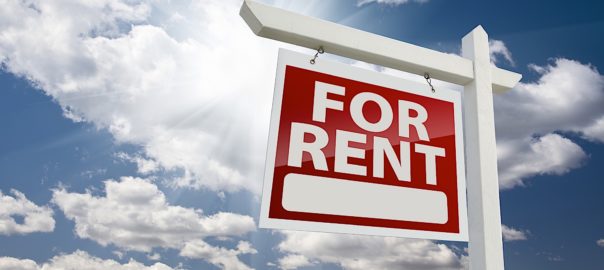How To Deal With Hidden Rental Property Issues
By Paul Esajian on May 3, 2019
The positives of rental property ownership greatly outweigh the negatives. In the right scenario your rental will generate passive income you can enjoy every month, all the while creating equity for the future. However, getting to this point will not be without some ups and downs and potential pitfalls along the way.
For as great as building a rental portfolio is, there are a handful of seemingly hidden issues you need watch out for. These issues can cripple your monthly cash flow and make ownership much more of a hassle than it needs to be. Instead of ignoring these issues you should face them head on and get out in front of them. Here are five hidden issues with rental property ownership, and a few tips on how to deal with them.
- Low ROI: For as popular as rental properties have become, many investors fail to grasp the big picture. The goal of a rental is to generate monthly cash flow and enhance your long-term portfolio. If the numbers don’t make sense, it is simply not a good investment, regardless of how much rent you are generating. You need to look at all the numbers in determining the cash flow picture. In addition to the monthly mortgage payment, you need to look at the utilities, town fees, lawn care, snow removal, maintenance, preventative maintenance and vacancy factors just to name a few. Never take the best-case scenario with these numbers. The truth is you can bend them to look anyway you like, but if you are overly optimistic all you are doing is hurting yourself. It is ok to walk away if the numbers don’t make sense and if the return isn’t to your liking.
- Time/Management: The idea of a rental is to use it as a source of passive income. Passive doesn’t require you to be at the property three times a week. On certain properties and with certain tenants the property can turn into much more time, and effort, than you anticipated. Instead of going to your mailbox once a month, you will constantly be at the property dealing with minor issues. These are not only time consuming and annoying, but they pull you away from other money generating tasks. Eventually you will get sick of dealing with them and will not be as quick to respond to every call you get. This can turn small property issues into much bigger ones. On the flip side, if you run to the property every time your tenant complains about the toilet or the front door your passive investment changes to an active one. This is most likely not what you bargained for when you bought the property. At this point your options are to pay for a dedicated property manager or to consider getting rid of the property and moving on. Neither of these is a very appealing option.
- Management Costs: Regardless of the size of your portfolio you should consider a property manager. Many first-time rental property owners think that managing the property will be easy. You simply find a tenant and wait for the rent to come in. As any experienced landlord will tell you this is not the case. Even good tenants will have questions and good properties will have minor issues. You can’t ignore a clogged toilet or a broken washing machine. Instead of dealing with these on your own you can have your property manager field these calls. This comes at a price. Most property managers get 10% of the monthly rent received. While you won’t have to deal with the everyday property hassles, you still need to pay for them and pay for management. There is no question that management makes your landlord life easier, but is it worth the free time and expense? Only you can answer that, but it is something that should be considered.
- Maintenance/Preservation: There is always something you can do to improve your rental property. Novice landlords think they will give the tenant the key and not hear from them until the end of the lease. While it is true you may go long stretches without talking, you may also get two calls in a week. Even updated rentals have items that need maintenance from time to time. In addition to toilets, there are always minor issues with keys, appliances, windows and doors. They won’t happen often but when they do, you need to handle them. You also need to expect your tenant to cause minor wear and tear to the property. Not enough to take anything from their security, but enough that you must take care of it. You also need to account for seasonal maintenance that must be done to the furnace, HVAC and oil tank. You can either pay a little more every year to keep these working efficiently or face a large bill for new items at some point down the road.
- Tenant Issues: If you own rental property long enough, you will eventually have to deal with a tenant issue. They will try to house an extra tenant, sneak in a pet, have a loud party or not pay their rent on time. How you deal with these will set the tone for the remainder of the lease. If you overreact, you may make the problem worse. On the flip side, if you are too passive your tenant will walk all over you and leave the property a mess. Even if confrontation isn’t your thing you need to anticipate doing it at some point in almost every lease.
Rental properties aren’t nearly as easy as you may think. This doesn’t mean you should ignore them, but you should know what you may be walking into.